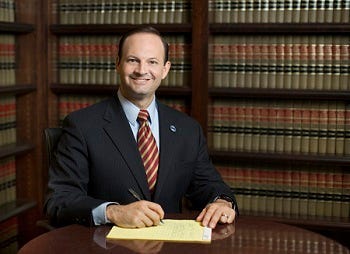
Attorney General Alan Wilson released a statement regarding his opinion on the constitutionality of the Heritage Act Thursday afternoon.
“The short answer is the Heritage Act is constitutional,” the Attorney General’s statement reads. “The General Assembly possesses paramount authority over public property, public places or public areas of the State and its political subdivisions, and thus may protect monuments and memorials dedicated to past wars or to honor its citizens as it deems appropriate.”
AG Wilson’s statement said that this means monuments and memorials protected by the Heritage Act thus cannot be removed.
But he also continued that should legislators so choose, they could also amend the Heritage Act with a majority vote from both houses.
In his analysis of the law, AG Wilson’s statement read, “The first sentence of Section 3 of the Act is fairly clear, protecting monuments and memorials to past wars in the State’s history – from the Revolutionary War to the Persian Gulf War, as well as ‘Native Americans, or African-American History monuments or memorials erected on public property of the State or its political subdivisions…” However, the second sentence is ambiguous, stating that ‘[n]o street, bridge, structure, park preserve, reserve, or other public area of the State or any of its political subdivisions dedicated in memory of or name for any public figure or historic event may be renamed or rededicated.’ (emphasis added). The Act does not define ‘public area’ and leaves open to interpretation by a court whether such phrase is limited to property held in title by the State or political subdivision, or is to be construed more broadly to include private property which is open to the public as a ‘public area.’”
This was a major point of the concerns that led to this statement in discussing what can and can’t be removed or renamed.
AG Wilson’s statement continued to discuss what falls under the term of “public area” before moving along through the rest of the sections of the Act.
“The Heritage Act is constitutional as a valid exercise of the General Assembly’s plenary power to preserve the State’s history… and thus may protect monuments or memorials dedicated to past wars, historic events, or to honor its citizens as it deems appropriate,” The conclusion of AG Wilson’s analysis of the Heritage Act read. The only concern he raises to the constitutionality of the Act is the two-thirds voting requirement of each house to make changes as opposed to the normal majority of each house. “Accordingly, not withstanding the two-thirds requirement, monuments or memorials protected by the Heritage Act cannot be moved or altered without legislative approval… At the very minimum, a majority of each house is required to alter or move a [protected] monument, and, in our opinion, such is constitutional, valid and binding.”
Read the Attorney General’s full statement here.
